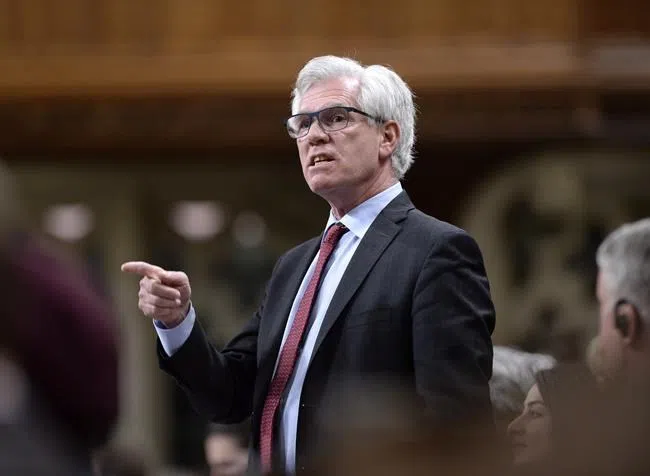
Pipeline plight: Carr confident feds will convince Kinder Morgan to proceed
OTTAWA — Natural Resources Minister Jim Carr says he is absolutely certain Canada and Kinder Morgan will come to a financial agreement that will convince the pipeline builder to proceed with the Trans Mountain expansion before a May 31 deadline.
Speaking at a Canadian Global Affairs Institute conference Tuesday, Carr said it was understandable that the threat of “endless court action” gave Kinder Morgan’s investors pause about proceeding with the project, which would triple the capacity of the existing Trans Mountain pipeline between Edmonton and Burnaby, B.C.
Ottawa green-lighted the expansion in November 2016, but a month ago the company hit pause on all non-essential spending on the project, saying ongoing opposition in British Columbia and the threat of legal delays was making it rethink moving forward.
The company gave Ottawa until the end of May to convince it there is confidence to proceed.
